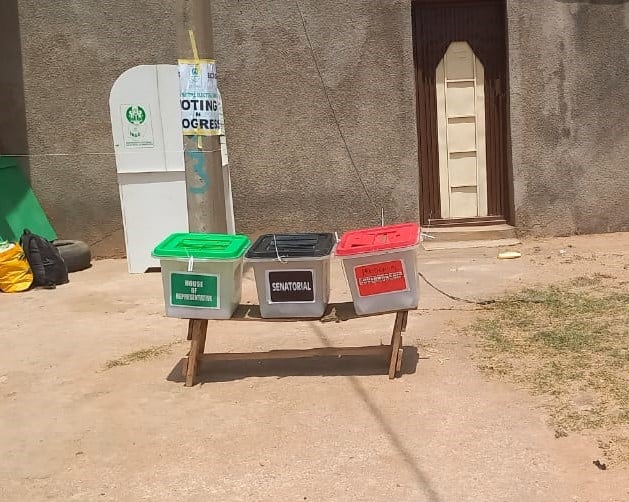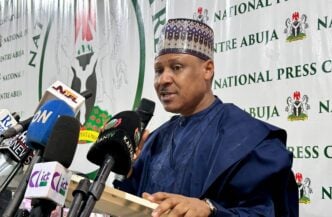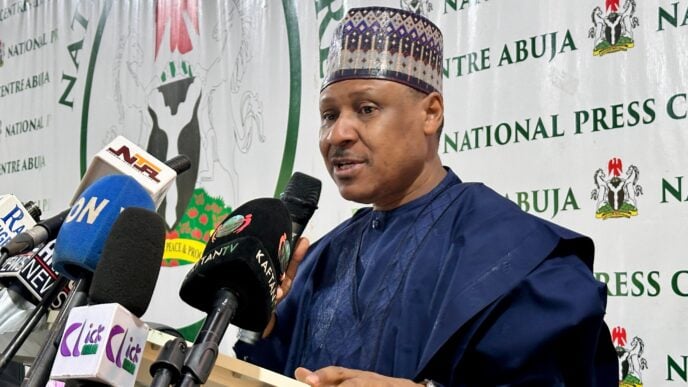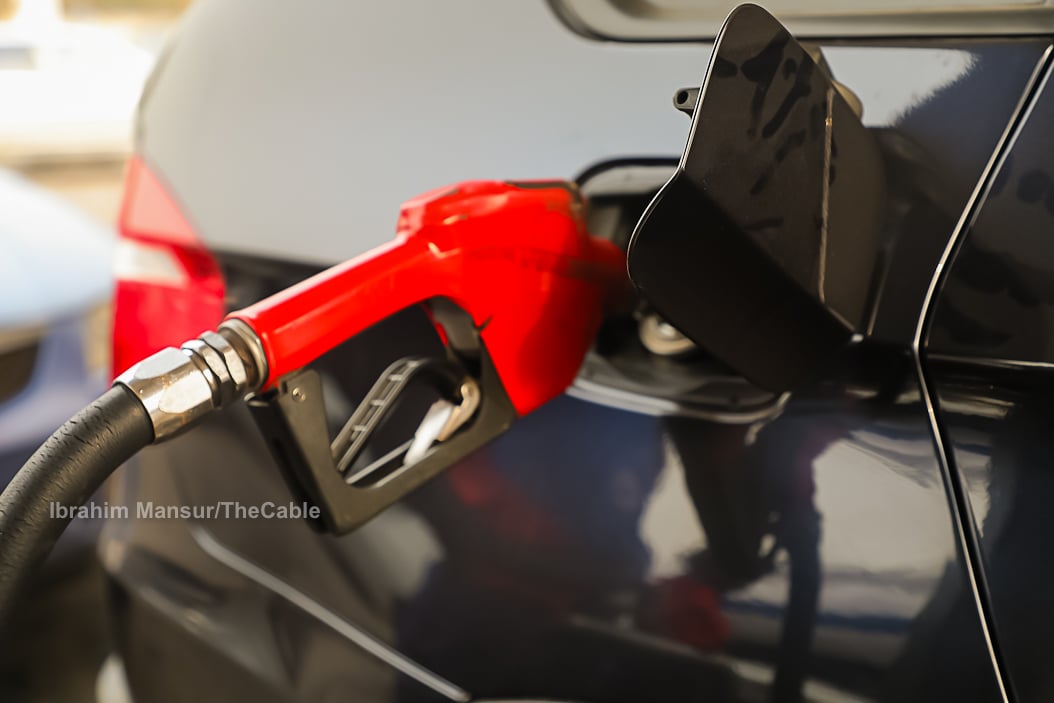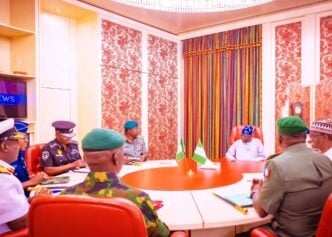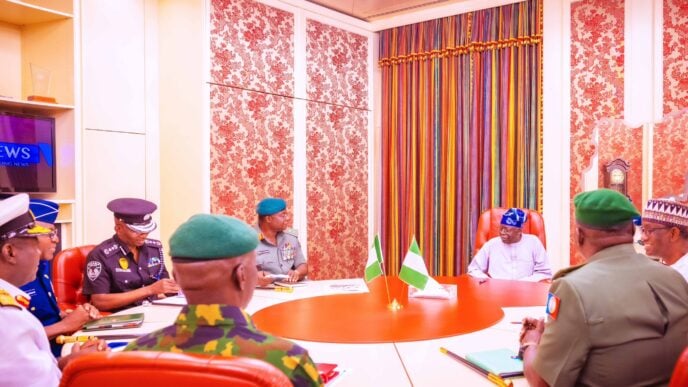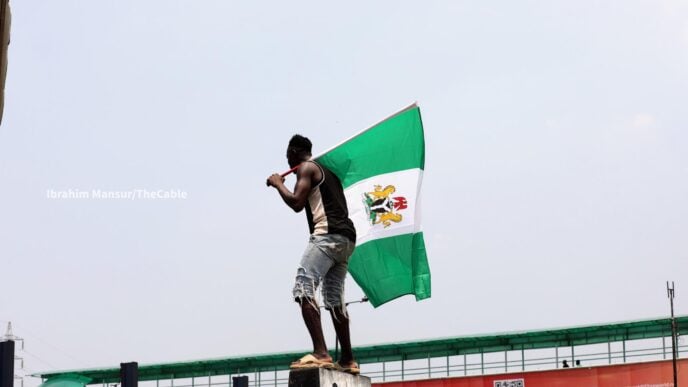BY KUNLE LAWAL
Nigeria likes to call itself the giant of Africa, yet if you observe our politics closely, what we run is less of a giant and more of a sprawling buka joint. The kind of buka where the waiter slaps a plate of food in front of you, insists it is the best meal you will ever eat, and dares you to complain. You order pepper soup, yet you are told the only options are Jollof rice and Pounded Yam. Patriotism, apparently, is measured not in contribution to the nation but in how loudly you chew and nod in agreement.
This buka is called Democracy, and its kitchen is overheating. Political intolerance has become the most dangerous item on the menu, and unless we address it, 2027 may well be poisoned before it begins.
What Intolerance Looks Like
Advertisement
Our Constitution is unambiguous. Section 39 guarantees freedom of expression and the right to hold opinions. Section 40 provides the right of assembly and association. These rights were designed to be the seasoning of democracy, ensuring no citizen should be punished for disagreement. Yet in practice, every attempt at dissent is treated as sabotage. To disagree is to betray tribe or party, and to criticise is to declare war on the state.
The Electoral Act 2022 goes even further. Section 97 explicitly prohibits campaigns based on religion, tribe, or sectional identity because these inflame intolerance and threaten peace. Still, every electoral cycle, politicians recycle the same old strategy. They dust off ethnicity, polish religious sentiments, and serve intolerance as though it were Sunday lunch.
Intolerance is not just rhetoric. It lives in the hostility against alternative voices, in the silencing of debate, and in the harassment of journalists. It appears when peaceful protests are labelled treason, when a young citizen who questions government policy online is hounded, or when an opposing party rally is violently disrupted.
Advertisement
Why It Keeps Growing
First is scarcity. The Nigerian economy produces more frustration than jobs. Every year, millions of young people graduate into a labour market that cannot absorb them. When hunger meets hopelessness, grievance becomes cheap to manufacture. In such a climate, politics becomes a survival ledger and every disagreement feels existential. If your candidate loses, you feel you lose your only shot at livelihood. Compromise starts to look like suicide.
Second is the rise of social media. Technology promised open debate, yet what we got are echo chambers that reward outrage. Where once Nigerians met face-to-face across market stalls, bus stops and mosques, today citizens fight each other from curated online rooms. Algorithms feed anger and intolerance is sold in bulk. A single tweet of criticism can summon digital mobs
Third is the weakness of our institutions. Our legislature, political parties, and civic platforms are fragile and underdeveloped. Citizens with grievances often have no legitimate outlets. When courts are slow, parties are closed, and civic spaces are shrinking, people improvise. They either bottle their anger or explode in protests and online rants. The state’s usual response is not dialogue but arrests or force, which simply fertilises further intolerance.
Advertisement
Fourth is the deliberate weaponisation of identity. Politicians know it is easier to mobilise anger than to sell policy. They invoke tribe or religion, painting opponents as existential threats. Analysts have long warned that this is the fragmentation of public reason. Debates that should be about policy are reframed as battles for ethnic or religious survival. The law already forbids it, yet without enforcement, it becomes the rulebook of politics.
Why 2027 Is at Risk
Elections are supposed to be contests of ideas. Yet what happens when citizens are trained to see the other side not as opponents but as enemies who have no right to exist? The answer is violence. The tragedy is that we have seen this movie before. 2011 elections scarred communities. 2019 witnessed attacks on journalists and protesters. 2023 raised new questions about integrity and trust.
Now consider 2027. We already carry a trust deficit in INEC. We face worsening insecurity and record youth unemployment. Combine these conditions with rising intolerance, and you have the perfect recipe for electoral chaos. If citizens cannot campaign freely or disagree peacefully, then ballots risk becoming mere triggers for brawls.
Advertisement
Our Constitution in Section 14(2a) states clearly that sovereignty belongs to the people. Yet sovereignty without tolerance is a hollow phrase. If citizens cannot exercise choice without intimidation, democracy is nothing more than a buka where chefs decide your meal and punish you for asking questions.
The Way Forward
Advertisement
First, civic education at scale. Rights are meaningless if citizens do not know them or do not value them. We must invest in teaching Nigerians how democracy works, how power is shared, and how to disagree without contempt. The Electoral College Nigeria’s Politeracy program proves that when people are taught constitutional principles and the structures of governance, intolerance declines and participation grows.
Second, we must enforce the law, not just recite it. INEC and security agencies must implement Section 97 of the Electoral Act with real consequences. Campaigns that use religion or ethnicity must attract firm penalties, not polite warnings. Intolerance is not just bad behaviour; it is a legal offence.
Advertisement
Third, we must secure digital spaces. Platforms must be regulated with care. Government should not censor, yet neither should online mobs dictate who can speak. Hate speech and disinformation must be curbed in a framework where civil society, platforms and regulators share responsibility.
Fourth, we must address the economy. Economic inclusion is political stability. When citizens are given jobs and opportunities, politics stops being war by other means. A hungry citizen is a combustible citizen, and intolerance is cheapest when bellies are empty.
Advertisement
Final Word
The threat to 2027 is not only INEC logistics or ballot printing, or security deployment. The real threat is whether Nigerians will be able to disagree without destroying one another. Political intolerance is the termite eating at our democratic woodwork. It remains invisible until the day the house caves in.
If we continue eating only what the buka serves and punishing anyone who dares to ask for pepper soup instead of Jollof, then 2027 will not be an election. It will be a food fight.
For the love of country,
Kunle Lawal is the executive director of Electoral College, Nigeria
Views expressed by contributors are strictly personal and not of TheCable.

